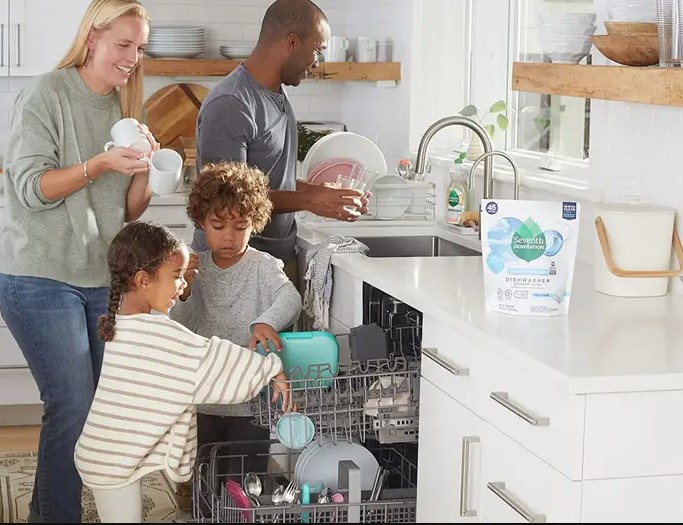
Sociologists Scott Coltrane and Michele Adams from the University of California at Riverside have shed light on the reason why men become more appealing when they're engaged in tasks like sweeping or doing laundry.
Through their data analysis, they have found that women find men who take on a greater share of cleaning chores to be more attractive and desirable.

Psychologist Dr. Gottman, an expert in relationships and marriage, has conducted research that suggests wives perceive their husbands' active involvement in household tasks as a demonstration of love.
This recognition of domestic participation by husbands leads to increased attraction and connection between partners.
The analysis rejects the belief that men who regularly take on domestic responsibilities such as caring for the baby, cooking, or cleaning are perceived as less masculine.
The reality is quite the opposite, as engaging in these tasks can make men more desirable, and attractive, and even contribute to strengthening their relationships.

Many studies indicated that the primary cause of family arguments is household chores. Actively participating in household tasks can help prevent many conflicts from arising.
Scientists at the University of Cambridge surveyed over 30,000 individuals from 34 countries to understand the time they dedicated to cooking, laundry, cleaning, shopping, and other household chores.
The conclusion revealed, "When you break away from traditional gender roles in domestic work, it is men, not women, who truly benefit."

Engaging in household chores has been found to positively impact men's longevity.
Studies have shown that men who actively participate in tasks such as cleaning, cooking, and other household responsibilities tend to have better health outcomes and longer life expectancy.
The physical activity involved in tasks like cleaning and gardening can contribute to better cardiovascular health, increased fitness levels, and reduced risk of chronic diseases such as heart disease and obesity.

Furthermore, sharing household responsibilities can alleviate stress and promote mental well-being. Men who take an active role in managing household tasks experience reduced stress levels and improved mental health, leading to a higher quality of life and potentially extending their lifespan.
Research has shown that when fathers take on household responsibilities, it positively impacts their children's cognitive development.
When children witness their fathers participating in household chores, they learn valuable lessons about gender equality, responsibility, and cooperation.
These lessons can have long-lasting effects on their attitudes and behaviors, including their approach to learning and problem-solving.
Especially, Young boys also benefit from their father's example. The data indicates that boys who engage in household chores alongside their fathers experience positive social effects.

These children tend to have better social skills, get along well with their peers, and develop more friendships compared to those who do not participate in household tasks with their dads.
Moreover, children who actively contribute to household chores with their fathers are less likely to display disobedient behavior, misbehave in class, experience feelings of depression, or withdraw from their social lives.
Their active involvement in household responsibilities instills a sense of responsibility, discipline, and cooperation, which positively impacts their overall social and emotional well-being.




